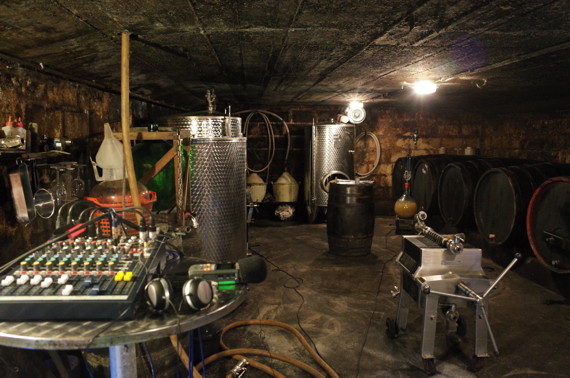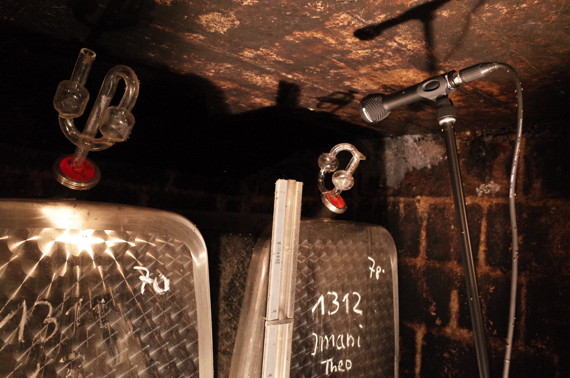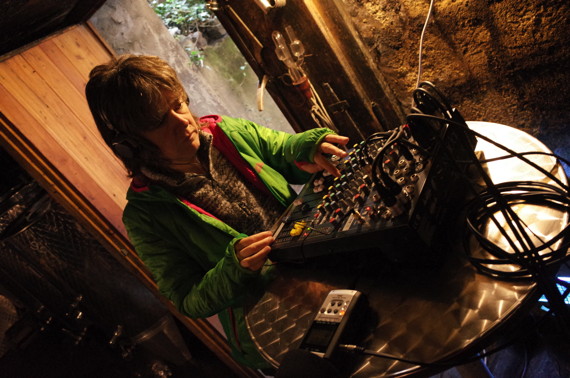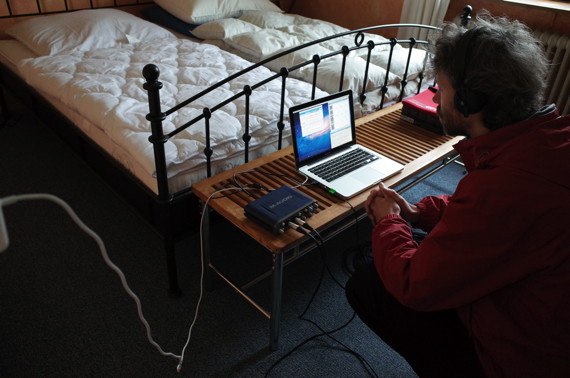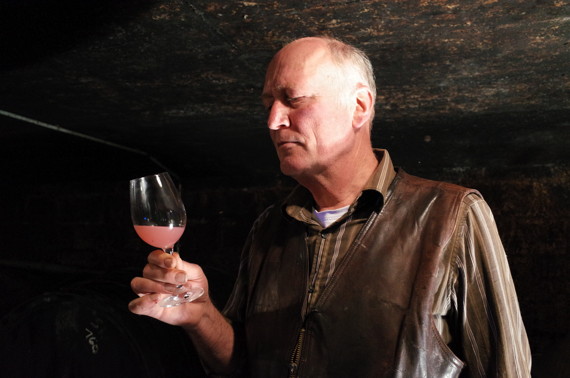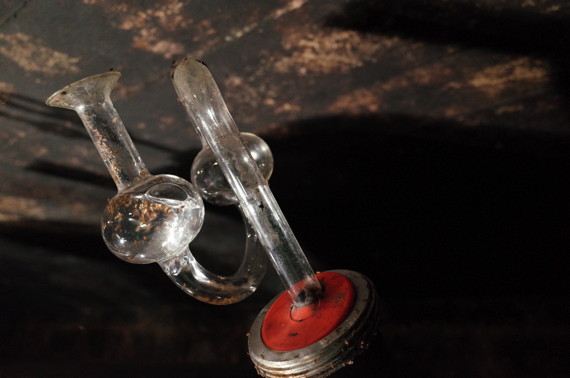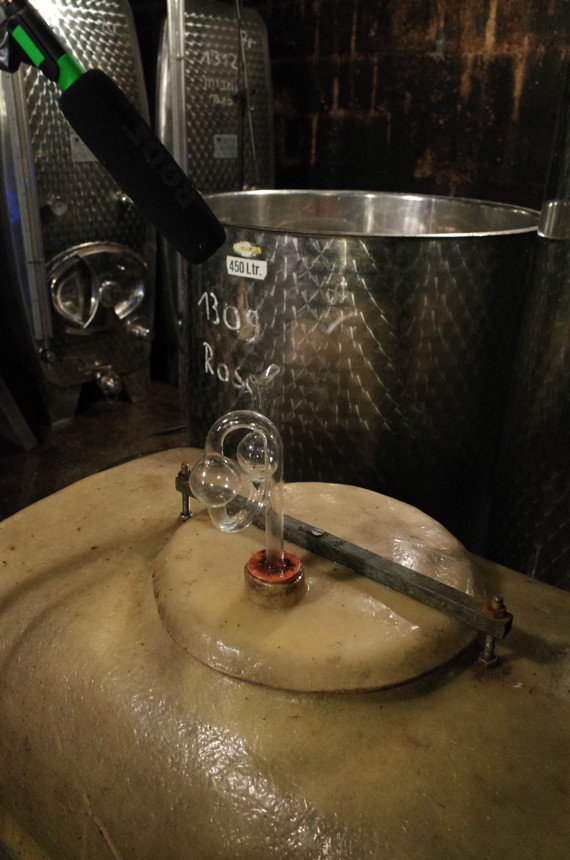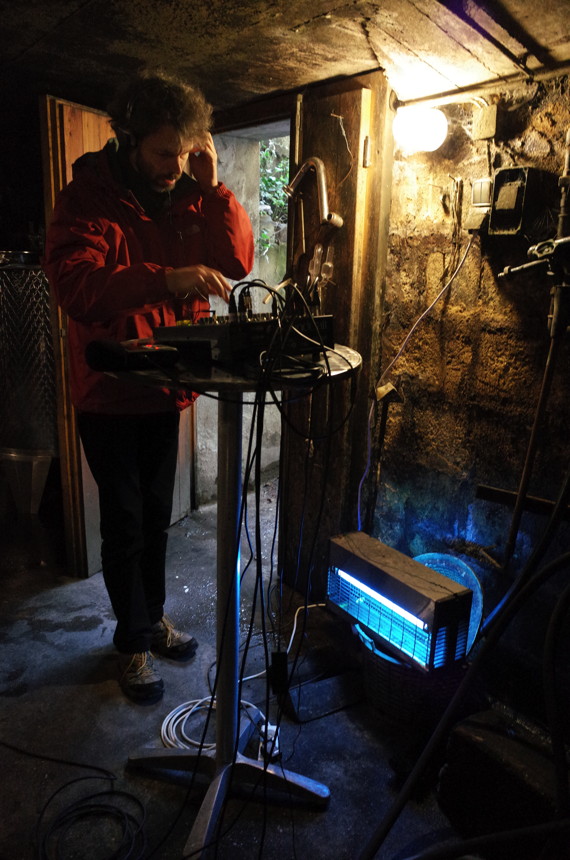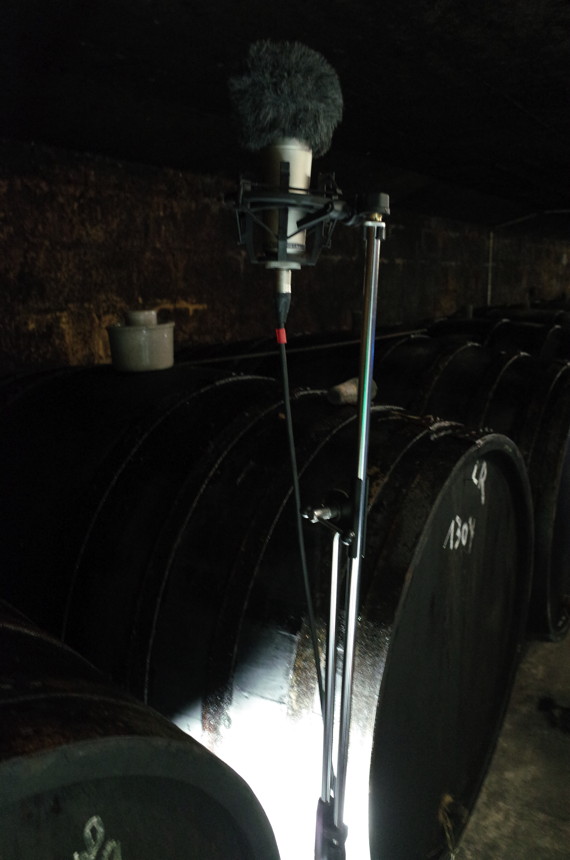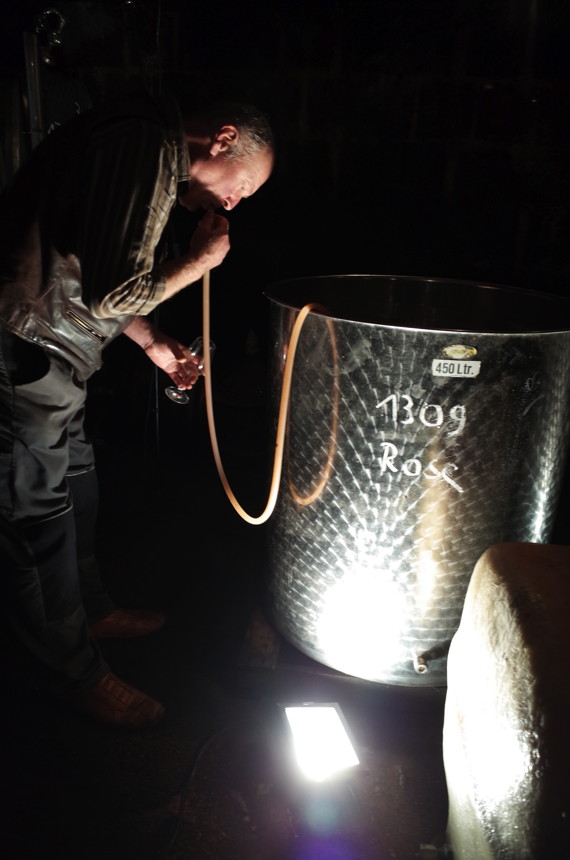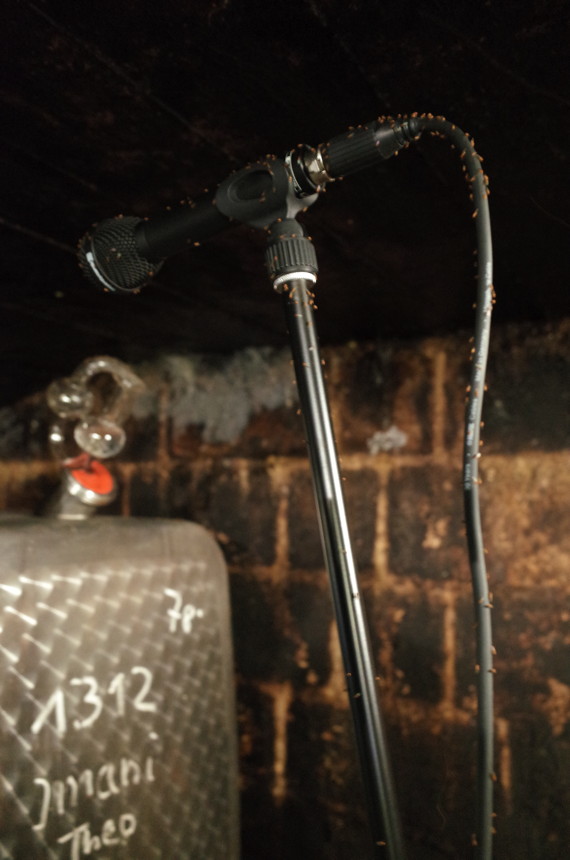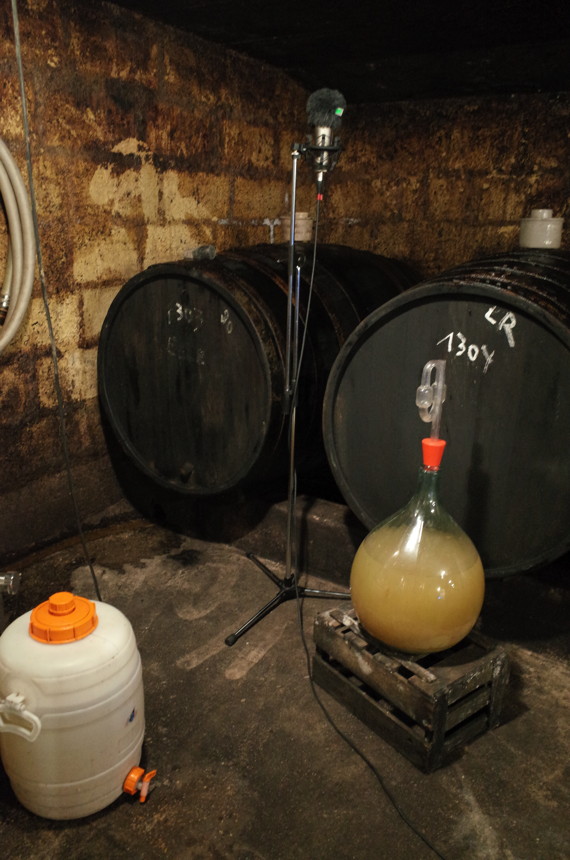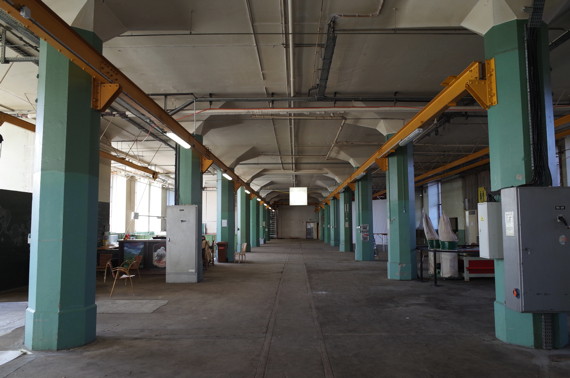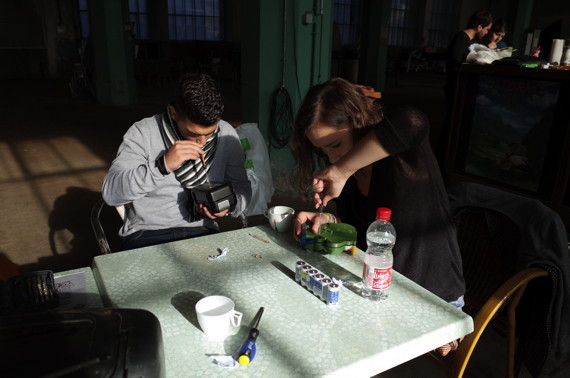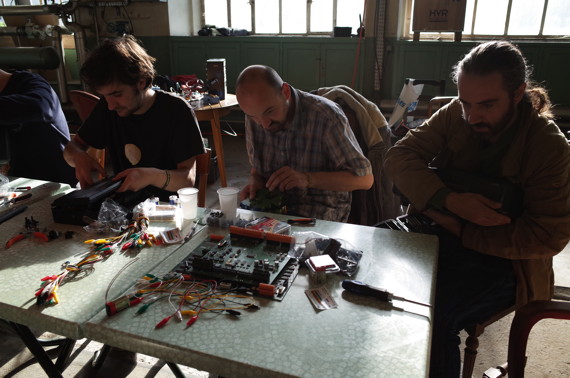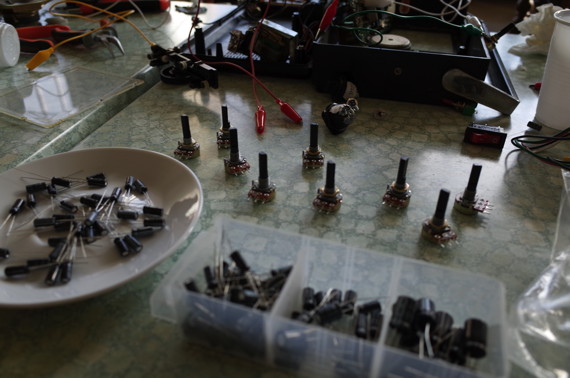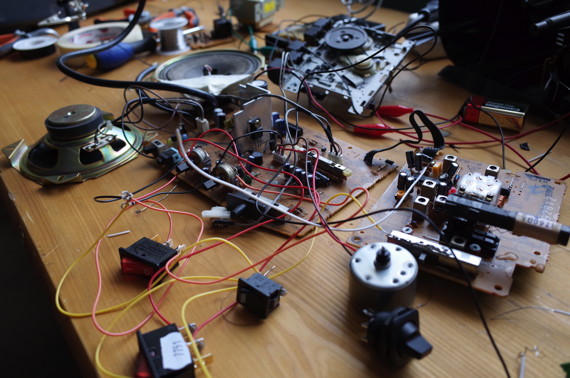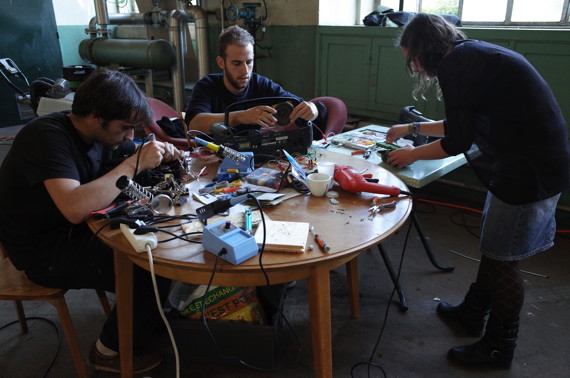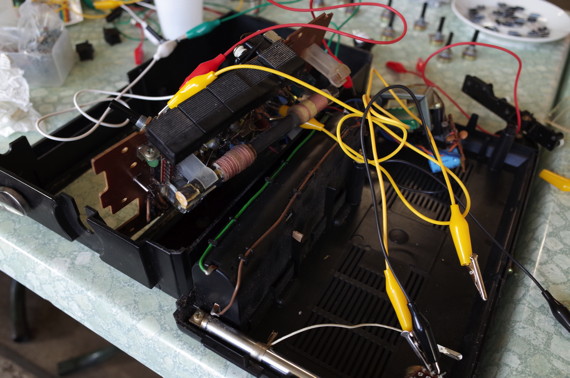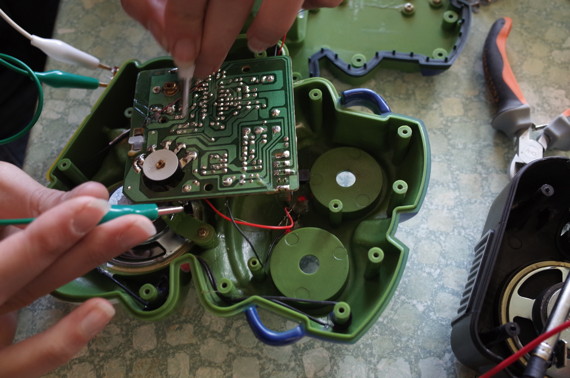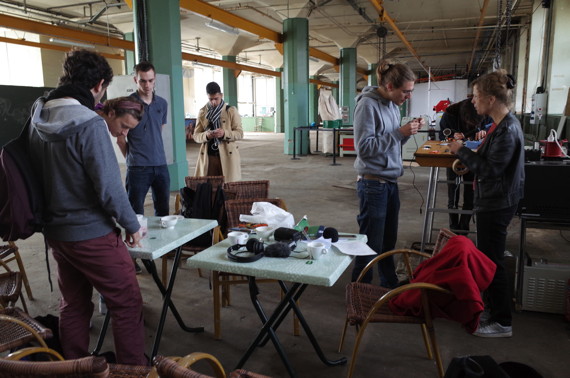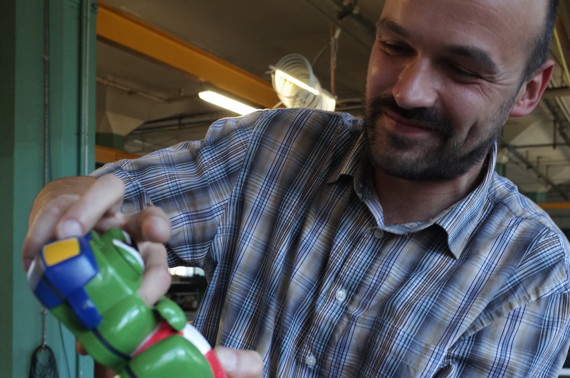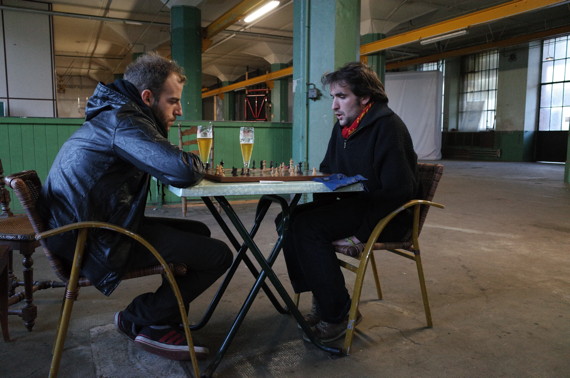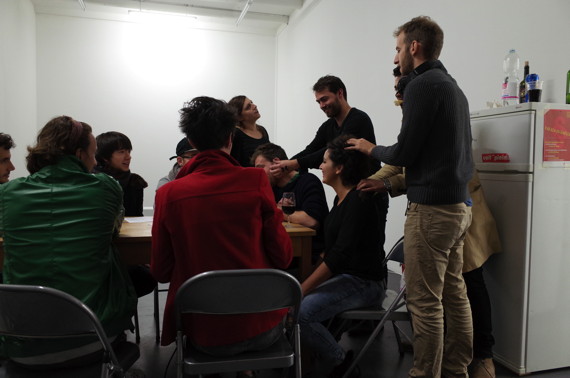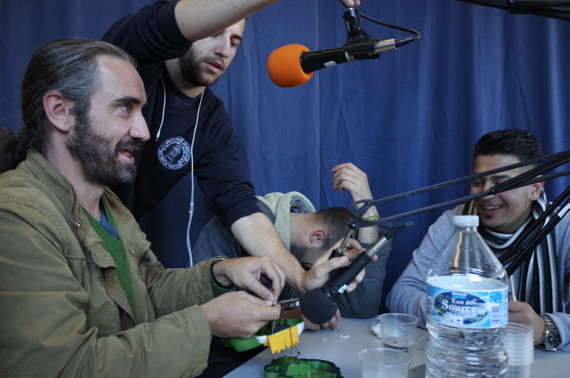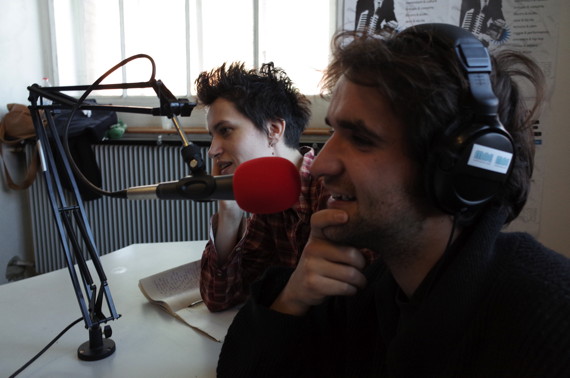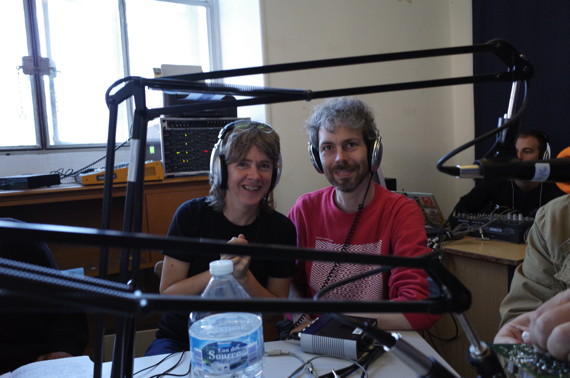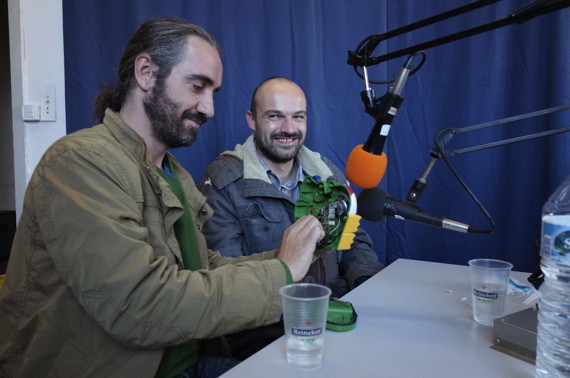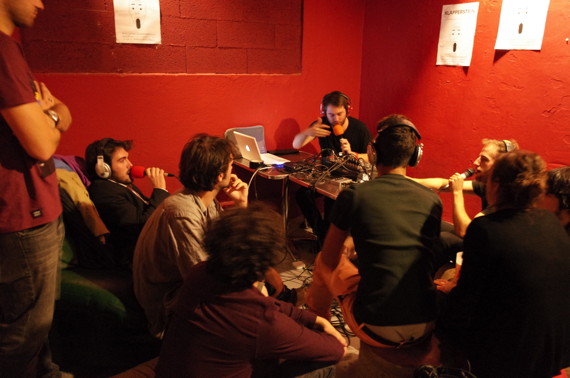On the invitation of Yoshitaka Mouri Knut gave a short lecture via Skype and streamed a live radio feedback performance to the Media Ecology of Radio symposium hosted at YCAM, Japan.
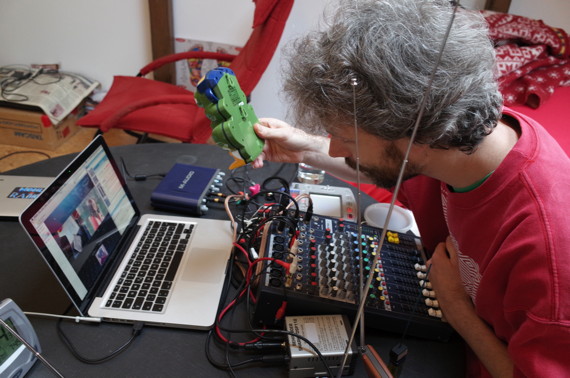
Every autumn thousands of wine cellars in the Mosel valley, Germany’s premier wine growing region, turn into magnificent sound installations. Freshly pressed grape juice starts fermenting in barrels and the escaping gas bubbles through glass u-pipes, each barrel at its own speed. Mobile Radio set up seven microphones in the wine cellar of bio-dynamic winemakers Rudolf & Rita Trossen to capture and broadcast live these fermentation sounds, documenting the work of yeast turning juice into wine over a period of 17 hours. The following edit is a recording of the activity in the cellar during the midnight hour on the 5th November 2013.
Many radio stations from the Radia Network broadcast the sounds live through the night (Radio Panik, Radio Zero, free109point9/WGXC, Kanal 103, Radio Campus, Radio Corax, Reboot.fm, Soundart Radio) or as an edit later on (Radio x, Orange 94.0, Resonance104.4fm, Radio One 91FM, Närradio). Even state public radio and television in Germany (SWR1, SWR4 and SWR TV) reported on what they dubbed the ‘bubble symphony’.
A special sacrifice was made by the fruit flies who added their sparks to the soundscape by visting the fly zapper.
We were invited to the week-long Franco-German Klapperstein meeting of university radio stations in Mulhouse to lead a radio hacking workshop.
Our workshop was held in a former textile factory that is slowly being converted into a cultural centre. Old FM radios were opened up and turned into beautiful noise machines by making new connections on their circuit boards. On the second day the participants, who came from campus or free radio stations in France and Germany, could also learn from Dinah Bird how to make a contact microphone.
Many aspects of the Klapperstein meeting were broadcast on a temporary FM frequency of Radio Campus in Mulhouse. Their approach was to transmit from various different make-shift locations in Switzerland (gallery), Germany (pub) and France (factory, club, restaurant, gallery space) which worked well and confirmed the possibility to run a radio station from many decentralized studios.
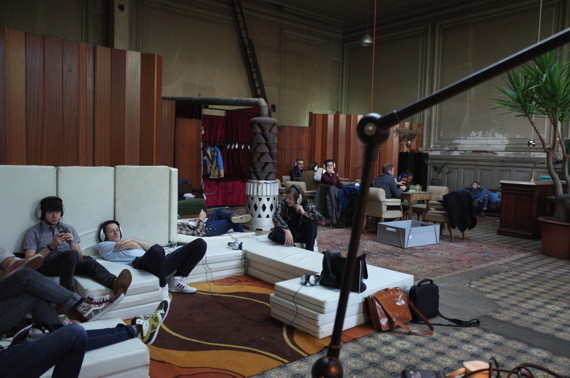
The final act of the meeting was a 24h Placard headphone festival which we opened with a Tonic Train set and later on included a performance by some of our workshop participants on their new musical instruments.


